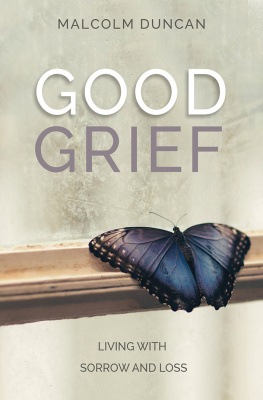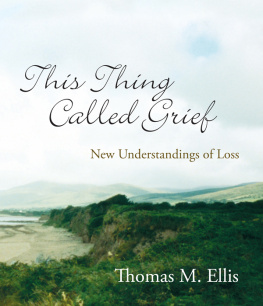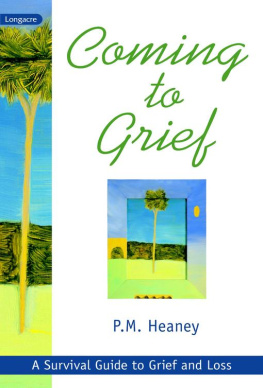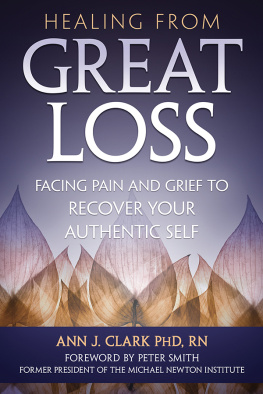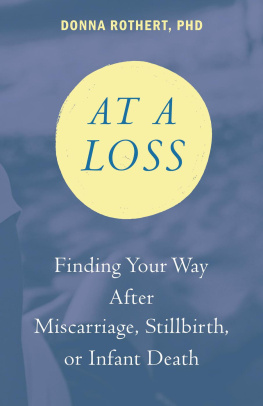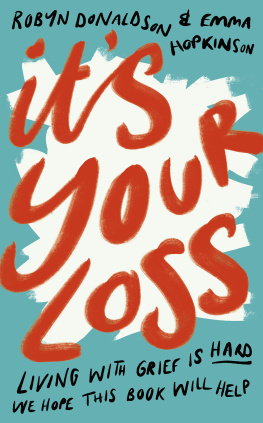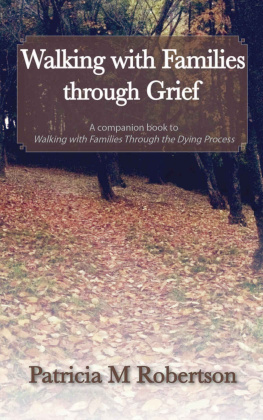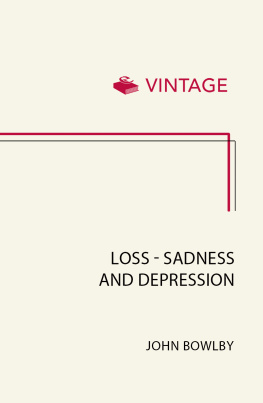
Understanding Loss
Loss and consequent grief permeate nearly every life-changing event, from death to health concerns to dislocation to relationship breakdown to betrayal to natural disaster to faith issues. Yet, while we know about particular events of loss independently, we know very little about a psychology of loss that draws many adversities together. This universal experience of loss as a concept in its own right sheds light on so much of the work we do in the care of others. This book develops a new overarching framework to understand loss and grief, taking into account both pathological and wellbeing approaches to the subject.
Drawing on international and cross-disciplinary research, Judith Murray highlights nine common themes of loss, helping us to understand how it is experienced. These themes are then used to develop a practice framework for structuring assessment and intervention systematically. Throughout the book, this generic approach is highlighted through discussing its use in different loss events such as bereavement, trauma, chronic illness and with children or older people. Having been used in areas as diverse as child protection, palliative care and refugee care, the framework can be tailored to a range of needs and levels of care.
Caring for people experiencing loss is an integral part of the work of helping professions, whether it is explicitly part of the work, such as in counselling, or implicit as in social work, nursing, teaching, medicine and community work. This text is an important guide for anyone working in these areas.
Judith Murray has a joint appointment as Associate Professor in Counselling and Counselling Psychology in the School of Psychology and the School of Nursing, Midwifery and Social Work, The University of Queensland, Australia. She also holds a part-time position as a Registered Nurse in Haematology and Oncology at the Princess Alexandra Hospital in Brisbane, Australia.
Understanding Loss
A guide for caring for those facing adversity
Judith Murray
First published 2016
by Routledge
2 Park Square, Milton Park, Abingdon, Oxon OX14 4RN
and by Routledge
711 Third Avenue, New York, NY 10017
Routledge is an imprint of the Taylor & Francis Group, an informa business
2016 J. Murray
The right of Judith Murray to be identified as author of this work has been asserted by her in accordance with sections 77 and 78 of the Copyright, Designs and Patents Act 1988.
All rights reserved. No part of this book may be reprinted or reproduced or utilised in any form or by any electronic, mechanical, or other means, now known or hereafter invented, including photocopying and recording, or in any information storage or retrieval system, without permission in writing from the publishers.
Trademark notice: Product or corporate names may be trademarks or registered trademarks, and are used only for identification and explanation without intent to infringe.
British Library Cataloguing-in-Publication Data
A catalogue record for this book is available from the British Library
Library of Congress Cataloging-in-Publication Data
A catalog record for this book has been applied for
ISBN: 978-1-138-82945-9 (hbk)
ISBN: 978-1-138-82946-6 (pbk)
ISBN: 978-1-315-73777-5 (ebk)
Typeset in Times
by Apex CoVantage, LLC
Contents
Part 1
Introduction
Part 2
Understanding
Part 3
Enablement: taking our understanding into practice
Loss is not new! For as long as humans have existed, for as long as they have formed attachments and relationships and been able to feel emotion, grief has existed. Much of the great literature of the world has spoken about the pain of the human condition, about loss death, illness, and the loss of love, family, trust, home and country. All the great religions of the world give comfort to human suffering. Burial grounds and monuments of the world remind us that grief is not something that has been invented in the twentieth century.
The happiest life consists of ignorance, before you learn to grieve and to rejoice.
From Ajax, Sophocles, 496406 BC
Each substance of a grief hath twenty sorrows.
From Richard II, William Shakespeare
Unending search in endless quest
So cold and still, how cold and still;
By grief and anguish, grief and anguish hard oppressed.
This season of sudden change from warm to chill
Weighs down the heart in search of peace
Tell me, with this, with all this,
How can one word sorrow paint what sorrow is?
Li Ching Chao, 10841151
We have always sought to understand this experience; yet it still eludes us in many ways. With the recognition of the awe-inspiring mystery of this deeply human experience, this book will seek to explore the science of loss. It will seek to collect the knowledge in a systematic way that will make the knowledge useful to the care of those facing the pain of loss.
This then seeks to show how this systematic understanding of loss can be utilized within practice to enhance the wellbeing of those affected by loss.
This book does not provide a definitive statement concerning a psychology of loss. It seeks to present a manner of organization of existing knowledge in the area of loss that it is hoped will support and enhance existing efforts toward integration already provided by other proponents of a psychology of loss. This book therefore seeks to stimulate further discussion and refinement of the ideas in this vital area of study of what it means to be human. It seeks to add to the call for an understanding of loss and grief to not only be a core part of the practice of psychological health, but in fact to be a core foundation of the care offered by all disciplines, sectors and the community at large to those facing adversity.
Please embark with me on this journey in the spirit of openness and curiosity. This is a truly fascinating world of knowledge we will explore.
Loss and grief have been mentioned and studied for many years. However, such study has often only been consequent to the study of specific areas, most notably bereavement. Serious life/loss events have been linked to problems such as depression (Tennant, 2002). Less common has been the recognition of loss as the larger encompassing concept deserving of study in its own right. Early proponents who have called for developing a psychology of loss have argued that loss is deserving of its own consideration for a number of reasons. Harvey and Weber (1998) argue that a psychology of loss forms an implicit assumptive base for other concepts such as stress, death and dying, and trauma; that loss is universal; and that there exists in the community a culture, and hence a language, of loss. Others have come to the conclusion in their study of a specific area that a study of loss does indeed permeate that area and many other areas. In their comprehensive review of bereavement, Stroebe, Hansson, Stroebe and Schut (2001) also advocate a need to advance study in the area of loss:


